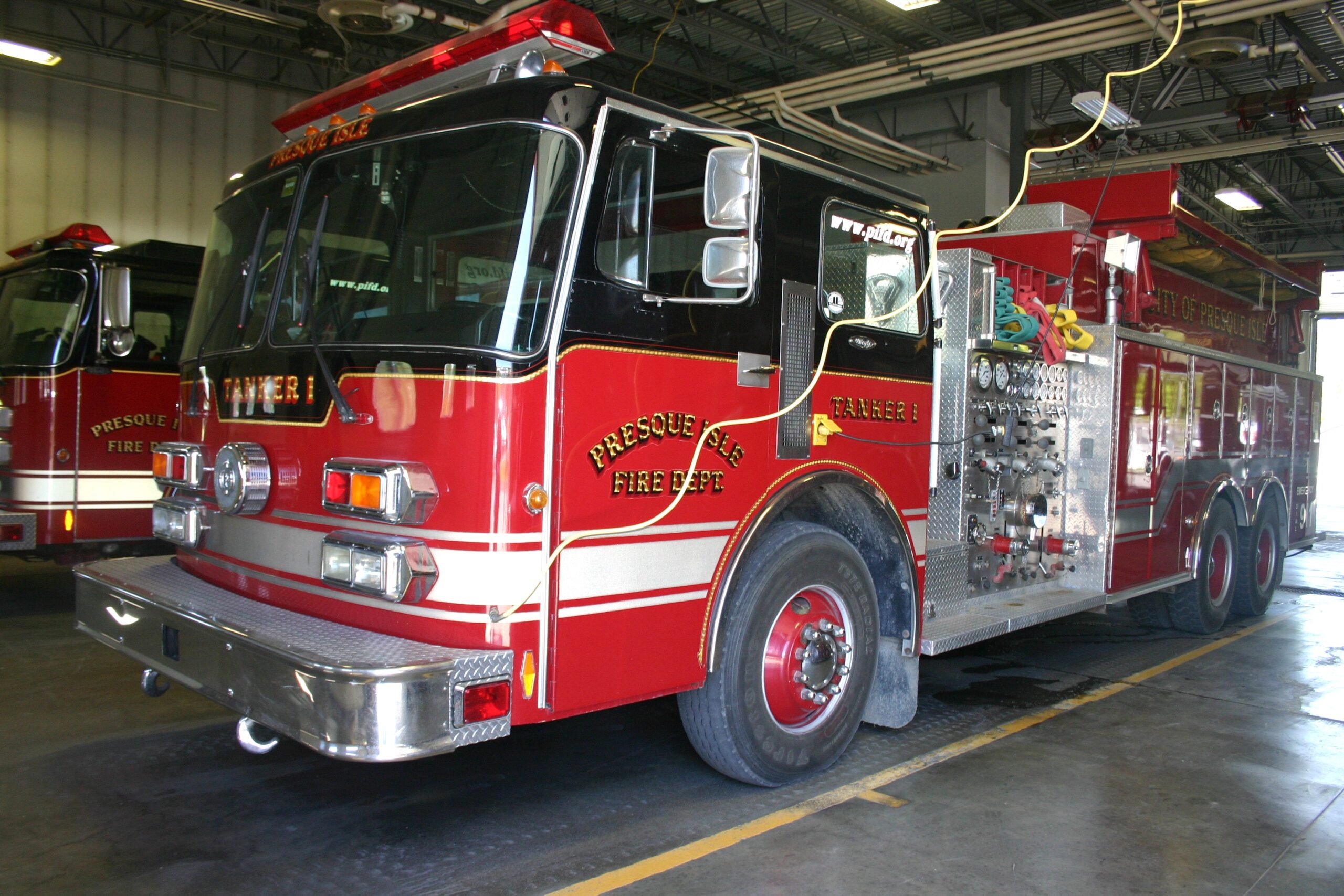
PRESQUE ISLE, Maine — During Wednesday night’s municipal budget meeting, Presque Isle city councilors decided to withhold the purchase of a new engine/tanker fire truck until a future budget year while debating the value of buying a new command vehicle that would primarily be used by fire chief Darrell White.
The fire department has been looking to replace the 34-year-old Tanker One, which doubles as an engine and tanker truck, for many years as the vehicle has become increasingly costly for the department to repair. The department previously applied for a $300,000 grant from the Assistance for Firefighters program of the Federal Emergency Management Agency that would have paid for much of the estimated $600,000 price tag, but were rejected.
Currently, the council has $240,000 total set aside in the fire department’s portion of the city’s capital reserve fund for the future purchase of a new engine/tanker truck. On Wednesday, the councilors decided not to add any more to the fire department’s portion of the capital reserve fund or to use the $240,000 as a down payment on a loan to pay for a new truck, as city manager Martin Puckett previously suggested.
With intentions of reducing the mill rate and maintaining a flat budget, councilors agreed not to add the expense of an engine/tanker truck to the 2019 municipal budget. Currently the city has $1,276,782 set aside in the fire department’s portion of the budget.
“There has definitely been a need to replace the truck, but we still seem to be getting by fine with what’s there,” said councilor Kevin Freeman.
White noted that the department could apply for the same FEMA grant next year, although the chances of obtaining federal funds are not always high especially with the recent rejection. Councilor Leigh Smith questioned whether FEMA would award the department the grant even though the city has $240,000 set aside for a possible truck purchase in the future.
“FEMA actually likes to see those types of funds set aside because it shows that we’ve been working hard to try to replace the truck,” White said.
In the end, the councilors agreed to not move forward with the engine/tanker purchase.
During the meeting, however, White disagreed with the councilors’ arguments against funding a new command vehicle that exists primarily as the fire chief’s main mode of transportation. He urged them not to delete another crucial need from the fire department’s budget.
“For the past 13 years, we’ve purchased and repaired four used police cruisers,” White said. “If we purchased a new vehicle we would not have to worry about replacing it for at least 15 years.”
White explained that he travels an average of 9,000 miles per year with the command vehicle, which he uses as his primary mode of transportation to respond to calls and to investigate fire reports and complaints. He also allows fire captains to use the vehicle when needed.
He said that the new model command vehicle being sought is the same as ones that sheriff’s departments around the state use and that it would be equipped with the latest radio systems, siren controls and communication equipment, all of which are necessary when responding to a call.
“Would it be possible to use one of the department’s pickups as a command vehicle?” Councilor Craig Smith asked.
White said the department already uses one of those pickup trucks when dealing with smaller scale emergencies such as grass fires and that their other pickup is not in usage because of a lack of funds for winter snow tires.
“We haven’t had enough funds in our budget for the tires,” White said.
Due to the absence of councilors Doug Cyr and Randy Smith, the remaining councilors decided to postpone a decision about the command vehicle until their next meeting, which is scheduled for Monday, Dec. 17, at 5:15 p.m. at City Hall. If the councilors do not approve the final 2019 municipal budget at that time, they will hold another meeting at 5:15 p.m.on Dec. 19.
Councilors have until Dec. 31 to approve the budget.




